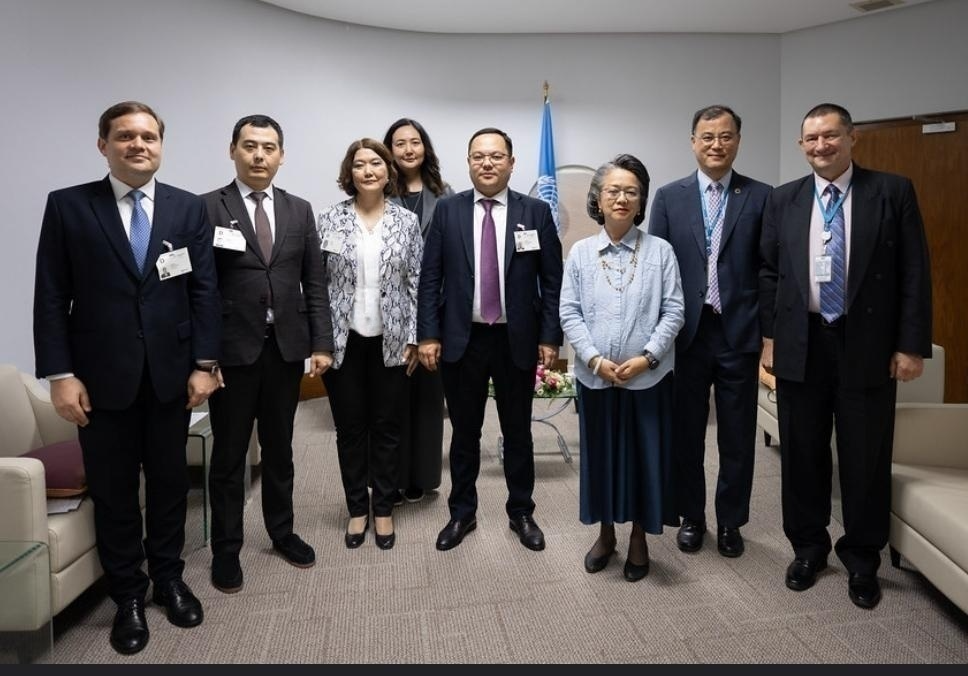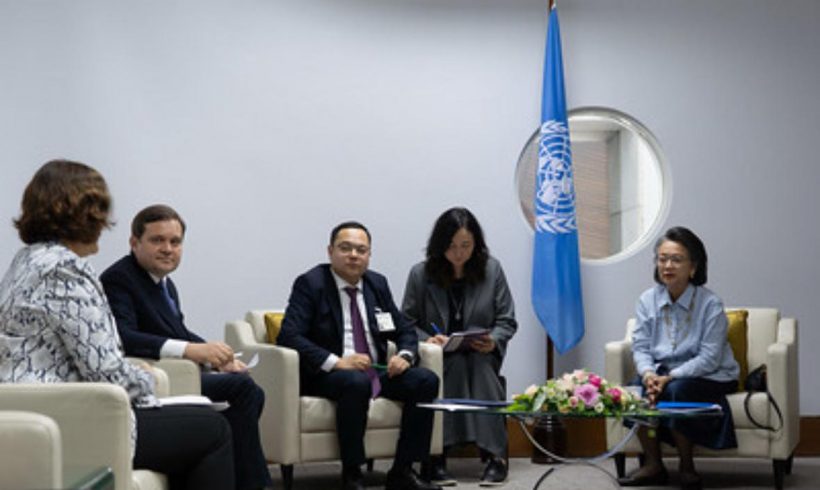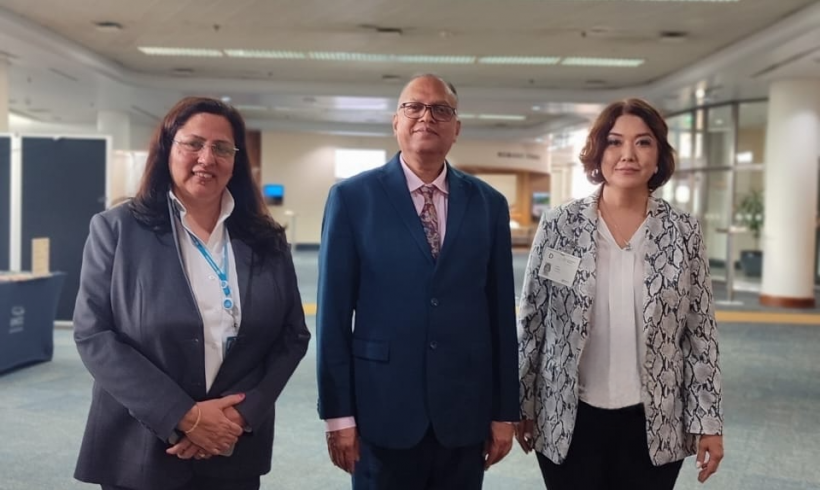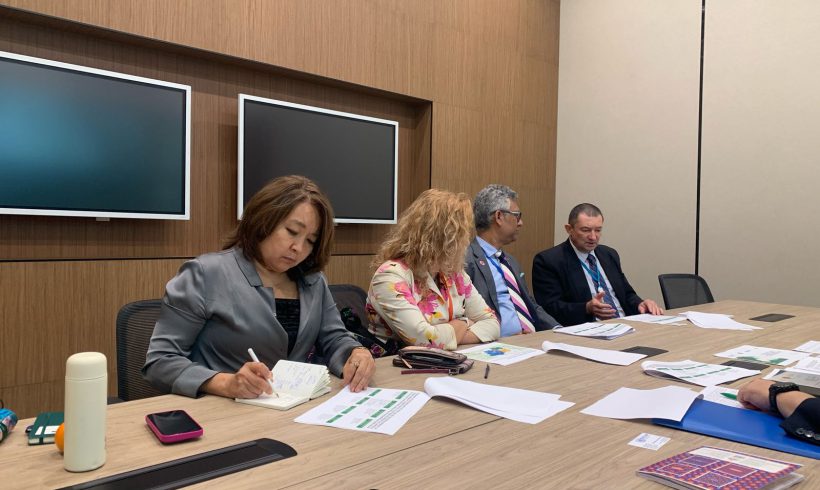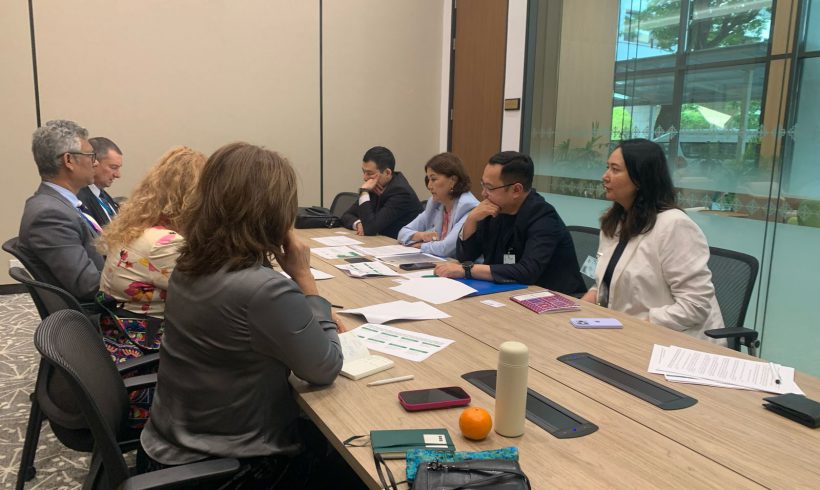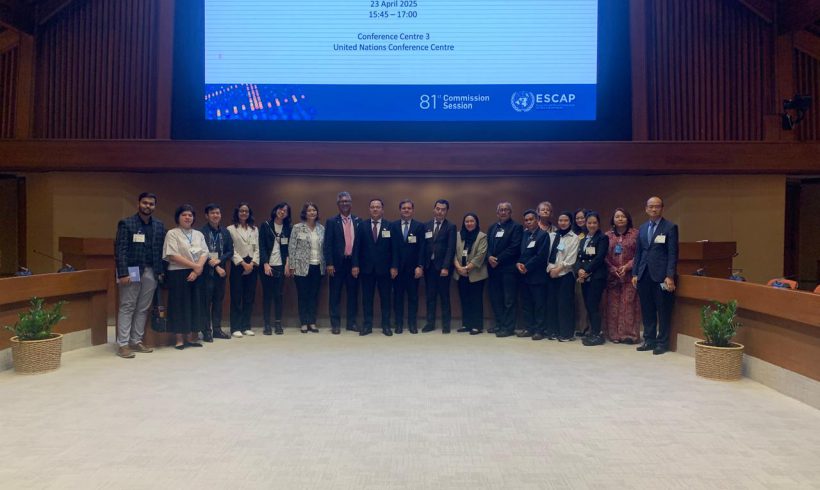The delegation of the Ministry of Ecology and Natural Resources of the Republic of Kazakhstan and the “International Center for Green Technologies and Investment Projects” (IGTIPC) participated in the 81st session of the United Nations Economic and Social Commission for Asia and the Pacific (ESCAP), held on April 22–23 in Bangkok. The key goals of the visit included hosting the side event “Green Belt of Astana” and enhancing cooperation in promoting the updated Green Bridge Partnership Programme (GBPP).
The Kazakh delegation was led by Daniyar Turganbayev, Chairman of the Committee for Forestry and Wildlife of the Ministry. The delegation also included Saule Kozykeyeva Kozykayeva, Deputy Chair of the Board of IGTIPC; Azamat Abuov, Head of the Department for Forestry, Forest Management and Flora at the Ministry; and other representatives.
On April 22, the delegation held working meetings with the following ESCAP divisions: the Environment and Development Division (EDD) and the Information and Communications Technology and Disaster Risk Reduction Division (IDD). These discussions focused on the content and implementation mechanisms of the Joint Action Plan between the Ministry and ESCAP for 2025–2027 to advance the GBPP.
In this context, Saule Kozykayeva delivered a presentation outlining the main directions of the initiative. She emphasized that Kazakhstan sees technological transformation as a strategic tool for sustainable development in Central Asia. Special attention was given to the creation of an International Digital Platform for green and climate technology exchange and the development of an International Technical Agreement regulating technology transfer.
On April 23, a bilateral meeting was held between the Kazakh delegation and ESCAP Executive Secretary and UN Under-Secretary-General, Armida Salsiah Alisjahbana. During the meeting, Kazakhstan officially presented the draft Joint Action Plan for 2025–2027. The parties discussed strategic directions of the GBPP and potential integration with ongoing regional and international sustainable development and green technology initiatives.
Earlier that day, the Kazakh delegation took part in the 81st ESCAP Session’s plenary meeting. On behalf of the Ministry, Daniyar Turganbayev delivered welcoming remarks. In his speech, he highlighted Kazakhstan’s unique experience in sustainable development and climate adaptation through the large-scale environmental project “Green Belt of Astana.”
Turganbayev noted:
“The Green Belt of Astana is not just about tree planting. It is a symbol of harmony between humans and nature. It shows how bold vision, supported by determination and science, can transform a barren steppe into a flourishing forest.”
In addition, Saule Kozykayeva held a number of bilateral meetings with representatives from the Asian and Pacific Centre for Transfer of Technology (APCTT, India), the Asian and Pacific Training Centre for Information and Communication Technology for Development (APCICT, Republic of Korea), as well as with representatives of the Embassy of Azerbaijan in Thailand.
The day’s highlight was the thematic side event “Green Belt of Astana,” organized by Kazakhstan’s Ministry of Ecology. Held in the format of a lecture and Q&A session, the event showcased Kazakhstan’s experience in creating an artificial forest of over 100,000 hectares around the city of Astana — a unique initiative to change the local microclimate, boost biodiversity, and combat desertification. The initiative was highly praised as a regional model of ecological leadership, advanced green technology deployment, and sustainable urban greening.
Kazakhstan’s participation in the 81st ESCAP Session occurred within a broad international framework, with representatives from more than 50 ESCAP member states and numerous UN agencies and international organizations in attendance.
Following the visit, the parties agreed to conduct regular coordination to ensure sustained cooperation on GBPP implementation and to jointly develop collaborative projects.


